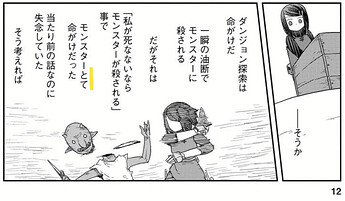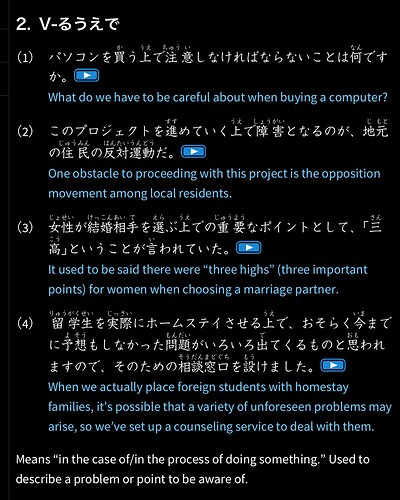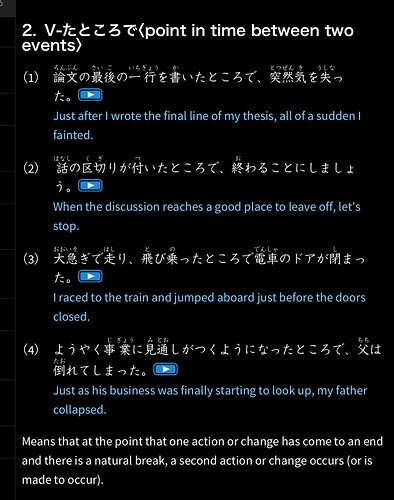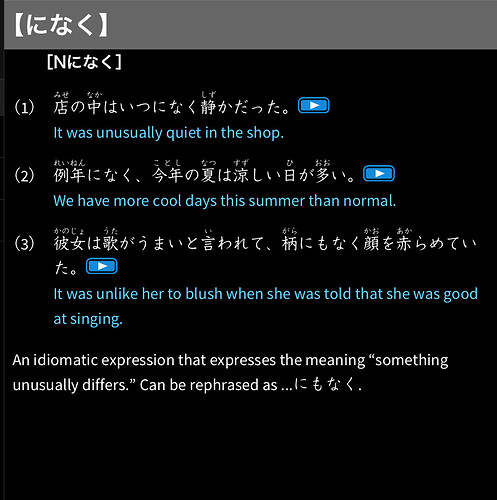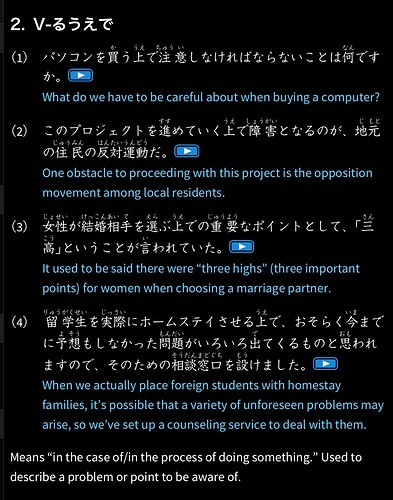Yes that’s what I meant.
I’ve seen it several times these days so I was surprised there’s no mention of it on Bunpro.
I think I heard something like お部屋は準備がまだ出来ておりません, and it seems to be quite common in アニメ.
From what I understand it’s the grammatically correct humble progressive, but not that humble even in standard Japanese.
It certainly deserves its own point in the 関西弁deck as a casual replacement for いる, but I don’t know how much it’s used and useful otherwise.
As a mid way point, we may potentially add おる, and its various uses as one combined grammar point, not just the polite one.
I think we are missing the ~とおす grammar point. Like doing something without stop. e.g. 隠し通す
I didn’t see anyone asking for せいか, which can be either an add-in to せいで or a separate grammar point.
Just wanted to swing by here to list some grammar points I’ve seen in the wild that I couldn’t add to my Bunpro queue (yet):
- AにAを重ねて, which has the meaning of doing “A” until success. This is just one of a heap of weird, idiomatic usages of 重ねる in Japanese, which would be cool to cover somewhere.
- AをB(と/に)する, which means to consider A as B, or treat A as B. This is just an extension of the にする grammar point but with a direct object. Bunpro’s にする article hints at this meaning, including the transitive “to make something into, To view something as” in its definition of the grammar point, but the actual body of the article makes no mention of にする taking a direct object.
-
The verb suffix 寄り, meaning “having a tendency to” or “being close to.” This one doesn’t even have a standalone vocab entry

- Aとする, when it means “to feel/to look like” after a sound symbolism or word of psychological experience. Hard to figure out on your own especially in the sound symbolism case, in my opinion!
- あえて、which means “to dare to” do something risky or to “purposely do” something trivial. Weird combination of definitions (and closeness to わざわざ) makes it more than a vocabulary word IMO.
- の as a casual question marker
- 百歩譲って as an idiomatic expression that means “supposing you’re right, even if that were true.”
Thank you, Bunpro team for always being so hard-working and responsive to feedback!
Edit: added 寄り which I forgot to originally include in my post
~される(が)まま(に)
to do as [passive verbed]
E.g., 言われるがまま → to do exactly as told
I wouldn’t suggest this normally as most uses of まま are intuitive once you know it but the insertion of が directly after a verb is confusing if you don’t already know similar structures (e.g., するが良い、するがために). Not sure if it comes up on the JLPT at all though.
Scrap this, it already exists! I don’t know how but I somehow missed it when searching.
Just wanted to add a suggestion for a something I think isn’t on bunpro (yet) and is quite a common word/grammar.
とんでもない
とんでもないこと a bad thing and/vs とんでもないです don’t worry.
Yes it is actually but in the vocabulary section !
you’re totally right! It didn’t come up when i searched とんでもない, only if i searched とんでも無い.
Which seems like a separate point about maybe not being able to search for vocab/grammar using hiragana readings only?
The grammar point i found, can’t find on bunpro and would like to share is ~なくなる.
It works on any negative form, be it adjectives or verbs
Ex. 1 もう気にしなくなった [I stopped caring]
Ex. 2 いつか素人じゃなくなるよ [Some day you won’t be a amateur anymore]
(Examples from website called selftaughtjapanese)
A petition to add a separate entry for からして in the meaning of example, like here: (〜からして①(例示)|日本語能力試験 JLPT N2 : 絵でわかる日本語)
Current Bunpro entry (からして (JLPT N2) | Bunpro) only talks about the meaning of judgement, and all example sentences are in that meaning as well. (〜からして②(判断)|日本語能力試験 JLPT N2 : 絵でわかる日本語)
を頼りに を頼りにして を頼りとして (with the help of NOUN)
とて (particle).
JLPT文法解説:とて N1 - 日本語教師のN1et lists it as N1 but 日常で使うと確実に笑われる which is funny in its own right.
I’ve run into it here 第2話 / ダンジョンの中のひと - 双見酔 | webアクション
I’m not sure what the best was is to report missing grammar is. Making a bunch of small posts to the same topic is prohibited, so I’m consolidating what I find in longer individual posts.
-
An idiomatic expression that expresses the meaning “something unusually differs.” Can be rephrased as …にもなく
-
V-るうえで
Means “in the case of/in the process of doing something.” Used to describe a problem or point to be aware of.
如何で いかんで
This one already exists as an N1 grammar point (search for いかん and it should come up).

